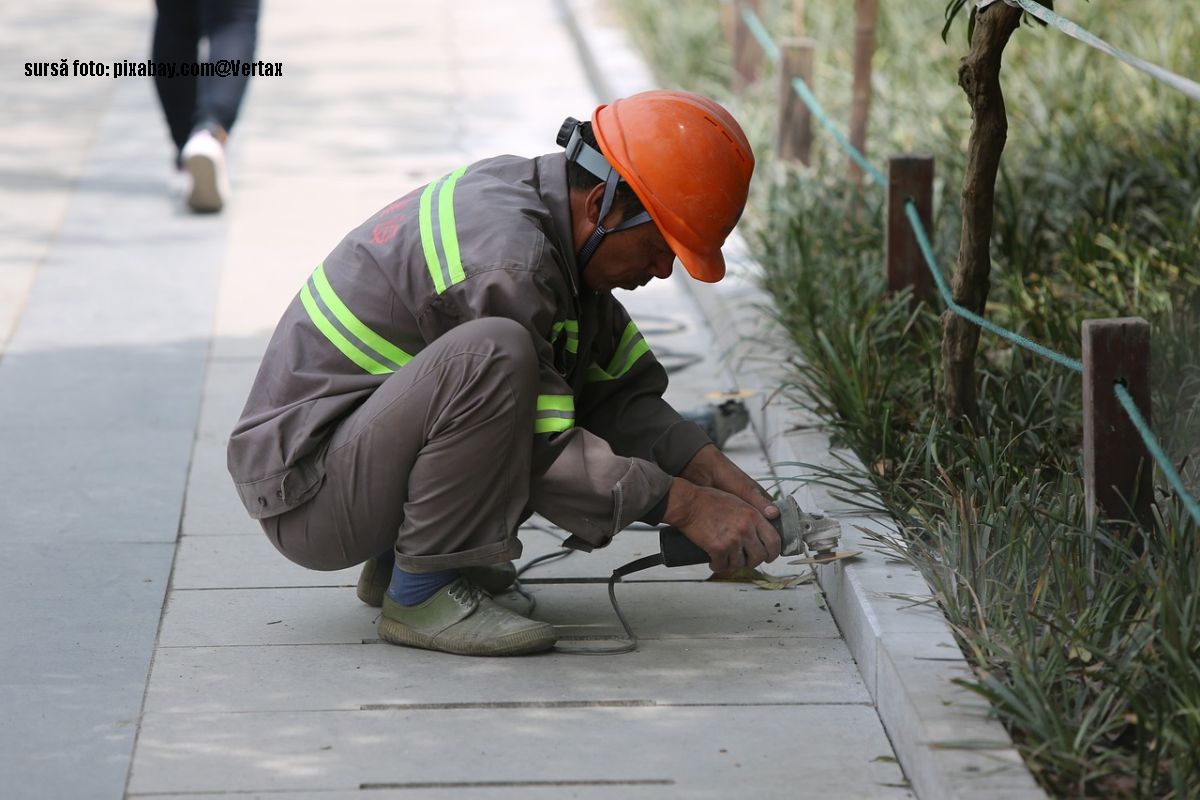The Young People of the ‘Invisible Generation’
The concept of NEET, referring to young people who are not in education, employment or training, has been included in the Romanian legislation.

Christine Leșcu, 20.07.2016, 11:28
The concept of NEET, referring to young people who
are not in education, employment or training, which appeared in the West a
couple of years ago, has eventually been included in the Romanian legislation.
Unfortunately, neither this concept nor the solutions the state provide for
improving the situation of this category, aren’t familiar to the target group.
Furthermore, statistics about this phenomenon aren’t very clear and for this
reason these young men and women have been dubbed ‘the Invisible Generation’.
According to the National Institute for Statistics, in 2013 roughly 440
thousand people under 25 were considered to be in the NEET category, and that
accounted for 17% of the total number of people in this age bracket, the EU
average being 12.5%. At the end of 2015, the Ministry of Labour reported only
80 thousand young people registered with the National Employment Agency.
Moreover, in 2014 unemployment among young people aged 25 to 29 years stood at
24.6%, as compared to 17.6% in 2007. The young people included in these
statistics come from various social environments and are faced with different
issues. Carolina, for instance, is a 15-year-old school dropout who has been
working in her parents’ household since she gave up school in the 8th
grade.
Carolina: My mother can no longer work and I have to help her
all the time. I have brothers and sisters, but they are working abroad, they
have their own problems and we don’t actually rely on them for help.
Without proper education
Carolina was unable to get a qualification and doesn’t have the right age to
find employment.
Carolina:
I have been trying to find a job here in our area and for a while I helped a
woman who cannot do household chores herself, but I had to give up because mom
also needed me. I am now trying to find a job again, and I’ve been going from
one place to another, but I haven’t
been able to find any because I am not of age. I have a sister in the town of
Tecuci, she works in a cafeteria and I’m thinking I should go and try to find a
job there.
Catalin is in similar
situation. He dropped out of school at the age of 17, now he’s 19 and all he
does is help his parents with household tasks where they live, in the county of
Galati, eastern Romania. Here is a day in his life.
Catalin: I usually
wake up around 7 o’clock and feed the animals. I actually do what is needed of
me and have chores almost every day. I don’t really have any days off. I
registered with the National Employment Agency, but I haven’t received any
answer so far. I haven’t attended any
training courses and things are moving very slowly in this region. I don’t have
an income presently and I rely only on occasional job offers.
Catalin dropped out
because his parents could not afford to keep him in school, but he’d like to go back, get a
qualification and eventually a job.
Catalin: I’d very much like to get a job. I am not
picky and I’d be doing any job in order to have my own money.
Not all the NEET young people are in Carolina’s and
Catalin’s situation, though. The diversity of this category was highlighted in
a recent study conducted by the NGO Coalition on Youth Rights. Veronica Stefan,
a representative of the Coalition, gave us a few examples.
Veronica Stefan: This NEET population includes young people
who drop out of school every year, those who finished high school without a
graduation diploma, but also people who graduated from a higher education
institution, some of them even with a master’s degree, but who have not been
able to find a job. The range is quite diverse, because it includes several
sub-categories. The problems of a 15 year old who dropped school after the 8th
grade are different from those of a young person aged 22 who has graduated from
university. Also, it is quite clear from the start that girls make up one such
sub-category. 18% of the girls aged up to 25 are in this vulnerable situation,
therefore they exceed the percentage of NEET youth taken together, boys and
girls. In the 25-29 age bracket, the proportion of girls is even higher, up to
30%.
Besides
girls and boys in the rural environment, who are not encouraged by their
families to further their education, there is also the subcategory of graduates
from higher education institutions. Veronica Stefan:
Usually, those
who graduate from a higher education institution choose to remain home and be
provided for by their families. They’d rather wait for better opportunities or
opportunities that are more relevant and related to the profile of the faculty
they attended. This is the situation of those young people who are still in the
financial care of their families. But there are also students who decide to
drop higher education in order to find a job, get a home or care for their own
families. There is also the category of young mothers. Many of them stay home
and take care of their children. The support system for such mothers is quite
inadequate, especially with regard to their reintegration into the labour
market.
To address the needs of these categories
and subcategories, in 2013 the EU adopted the Youth Guarantee Programme. In
Romania, the law under which the programme was adapted to the local situation
and through which EU funds should have been used, has been in force for two
years now. Unfortunately, nobody has used it and many young people haven’t even heard of it. Veronica Stefan told us
how this Youth Guarantee Programme
should work.
Veronica Stefan: After four
months with no job, a young person should register with the county employment
agency and be presented with an opportunity: vocational training, reintegration
into the education system or a job. But this has only been put on paper and
presented as pilot projects. Youth Guarantee should be a permanent,
self-sufficient mechanism. Any young person, whether they register themselves
or are registered by somebody else, should be provided with this opportunity
right after registration.
Besides
applying the legislation regarding the Youth Guarantee and unblocking EU
funding for those who are in one of the NEET situation, NGOs recommend a
different approach for each and every subcategory, in keeping with their
particularities.






























